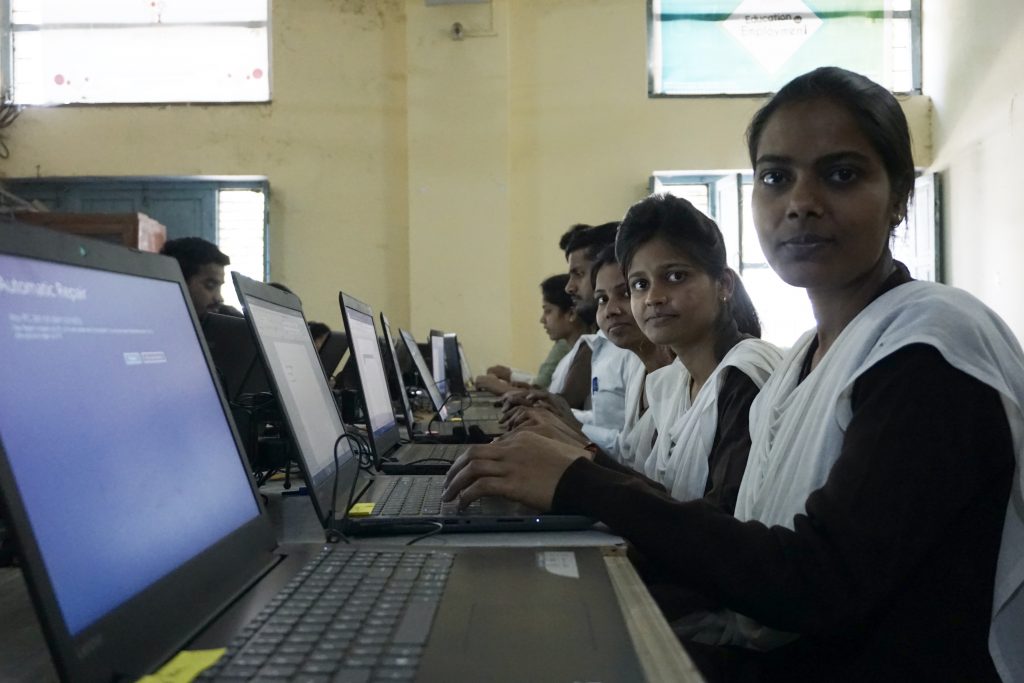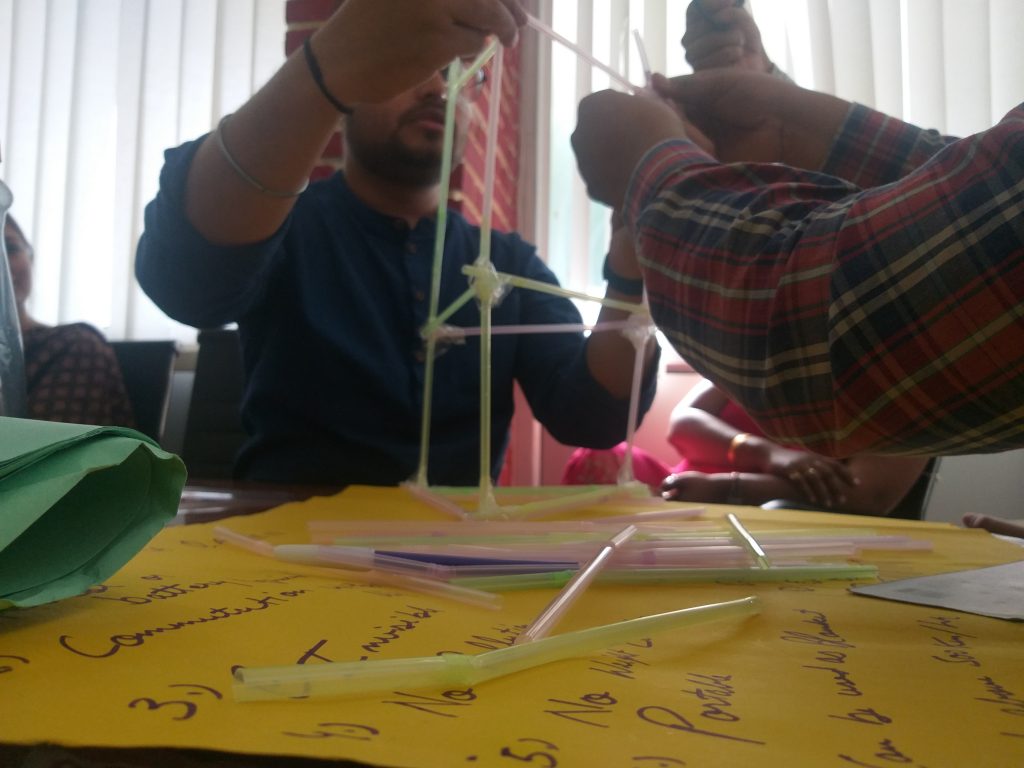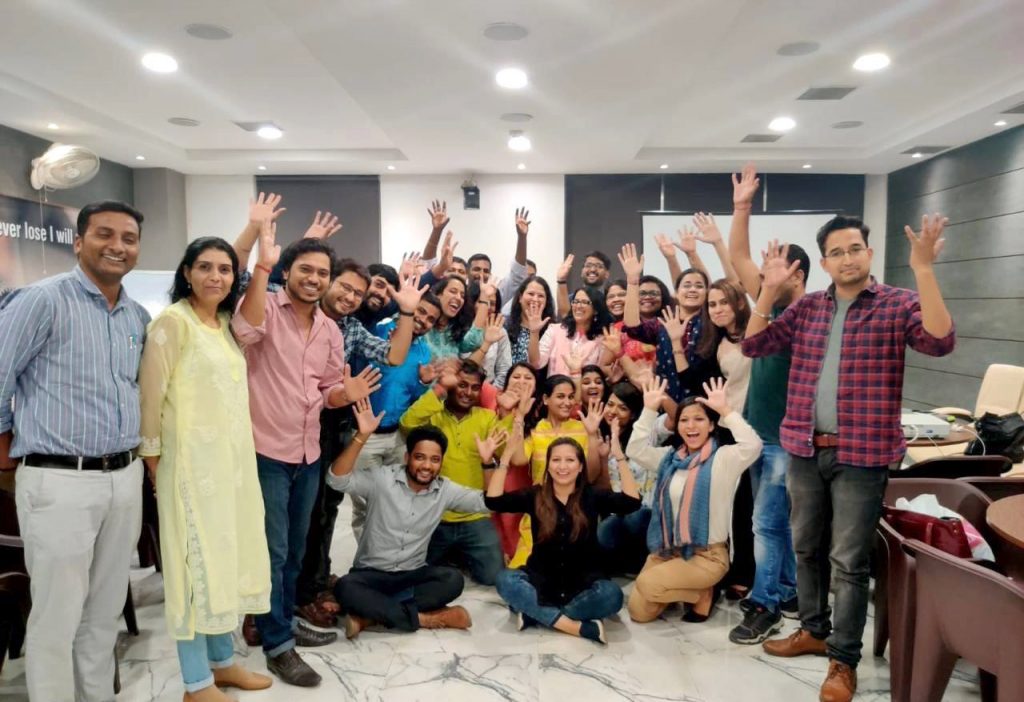Navigating 2020: A ten-point roadmap
The COVID-19 crisis prompted the Operations team at Medha to lean into its field experiences and prepare a roadmap to help lead the way during and beyond these uncertainties.
From goal setting to tactical decision-making, the roadmap covers all the essential aspects of planning and running the operations.
1) Going Digital Without Losing the Touch
Medha is adapting a ‘blended’ delivery model of its program, i.e., combining the offline facilitator-based training with digital platforms for connecting with the students. Despite changes in the delivery model, we will strive to maintain the USP of experiential learning and SRM-bonding.
We’re also exploring e-models of experience enriching events such as Workplace Exposure Talks and visits, Career Chaupal, YouthScape, Alumni Events. Going digital will provide us more flexibility in staying connected with students and enhance their learning & experience.
2) Tackling the Exclusion Caused by the Digital Divide
Our digital outreach efforts may exclude a section of students with limited access to technology; laptops, reliable internet connection, and smartphones. We shall identify this section and cater to it with decentralized solutions like aiding a few students with mobile phones, laptops, and data-packs for a particular period. By enabling them digitally, we aim to change this challenge into an opportunity.

3) Bringing Business Agility through Strategic Task Forces (STF)
An STF comprising the Area Managers was formed towards making immediate, short-term, and long-term adjustments in our business model. By taking up new ideas and issues reported from the ground and implementing micro-innovations, the STFs are working with relevant departments and teams on the new processes, operational policies, and the changes required.
4) Innovating, Implementing, and Integrating
Tapping the opportunities brought by ‘the new normal’ and maintaining sustainable business advantage, we plan to pursue the path of micro-innovation aggressively until it is ingrained in the organizational culture. The STF will help the area teams design and implement the micro-innovations in their respective areas, coordinate with departments, and measure their results.
5) Focusing on Better Outcomes
As a student-centric organization, adding more value to the journey of our students is prime. We will work to achieve a more diverse set of career progression outcomes, such as apprenticeship, gig work, work from home opportunities, subject to fulfilling the standard criteria. Counseling the students in choosing the right career option and better institutions for higher studies would also be one of our critical responsibilities.
6) Learning, Unlearning, and Re-learning
The fast-paced changes have affected the conventional definitions of employability skills and workplace readiness. As facilitators and counselors to our students, remaining aware of the ongoing industry trends, updating the existing skills, and equipping ourselves with the right skillsets is vital.
As a team, we will become adept at the blended training delivery and the revised content.

7) Surviving through Self-reliance
Self-reliance, i.e., aatmanirbharta, is the new mantra to thrive and survive this crisis.
At the student level, along with equipping students with the right skills, connecting them with support systems, we would also create models to support desirous students become “job creators” and gainfully self-employed.
At the departmental level, we will ensure better cooperation with regional members/teams. While, at the organizational level, we strive towards ‘sustainability.’ The hour’s need is to better understand our unit economics, optimize our costs, and explore new revenue opportunities.
8) Complying and Reporting
Contributing directly to the business objectives makes team operations the organization’s frontline representatives and the source of all qualitative and quantitative data. In addition to monitoring, compliance, and reporting, we will continue to bring more transparency and accountability in our work, promote healthy work culture and keep the organizational values intact both as individuals and a team.
9) Being in it, Together
Collaboration is one of our core organizational values, and we stick to it while working with all our stakeholders and partners.
It might become a business imperative to work with parents, teachers, and other influencers to engage and retain students in the current situation. We also aim to enhance our efforts with more intra-departmental and interdepartmental collaboration and knowledge sharing to navigate this business environment.

10) Preparing for Future Acceleration
This year will allow us to focus on projects like Swarambh (solopreneurship), the blended model, and gig work left unattended due to the pressure of scale and growth over the years. This is our time for trial and error, experimenting with new approaches, and fast-track technology adoption in our processes to get the desired outcomes in the future years.
The uncertainties that the pandemic brought along may have blurred our vision for a bit, but we cannot forget our long-term goal of systems change.
We aim to bring that by integrating our innovation and approach within the government institutions, paving the way for the country’s youth to prosper!